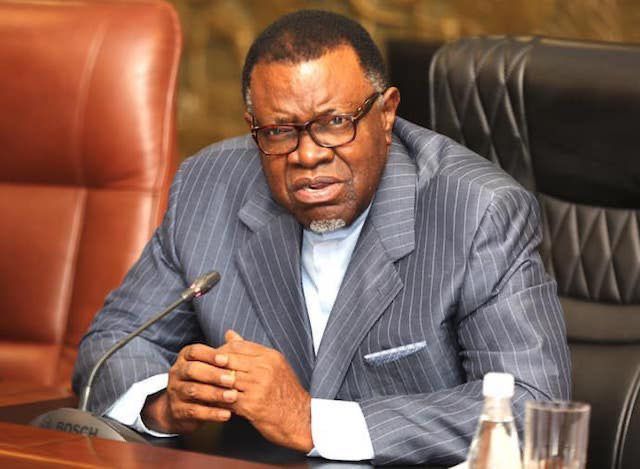URBANISATION and the high number of unemployed people flocking to Windhoek were once again singled out as the major factors straining the city’s budget.
Outlining the budget of N$1,19 billion for the 2004/05 financial year at a special council meeting on Wednesday night, the Chairperson of the Management Committee, Dr Björn von Finckenstein, bemoaned the lack of central government support for running the capital. He said other large cities around the world benefited from taxes generated within their confines.Last year, the city’s budget had reached the N$1 billion mark for the first time.Von Finckenstein said the continued growth of the city, which now stands at nearly five per cent per annum, meant that the demand for services had not let up over the past year.He described the influx of people from the rural areas as reaching “critical proportions”.The high unemployment rate, he said, further drained the city’s limited resources to provide housing and services to these people.The city’s largest capital project over the next year is the maintenance and upgrading of road infrastructure which will require nearly N$52 million of a budget of nearly N$300 million.Most of this money will be used for the extension of Robert Mugabe Avenue.About N$22 million has been set aside for the Katutura Soccer Stadium.Another N$51 million has been set aside for the development of townships.The city’s operating budget, which includes the maintenance of infrastructure, is N$892 million.Von Finckenstein said although the capital budget had been strained over the years to meet increasing demands for the provision and maintenance of basic services infrastructure, the revenue base for this purpose had diminished.Salary-related expenditure for the City of Windhoek’s nearly 1 500 employees will take up 32 per cent of the budget.He said other large cities around the world benefited from taxes generated within their confines.Last year, the city’s budget had reached the N$1 billion mark for the first time.Von Finckenstein said the continued growth of the city, which now stands at nearly five per cent per annum, meant that the demand for services had not let up over the past year.He described the influx of people from the rural areas as reaching “critical proportions”.The high unemployment rate, he said, further drained the city’s limited resources to provide housing and services to these people.The city’s largest capital project over the next year is the maintenance and upgrading of road infrastructure which will require nearly N$52 million of a budget of nearly N$300 million.Most of this money will be used for the extension of Robert Mugabe Avenue.About N$22 million has been set aside for the Katutura Soccer Stadium.Another N$51 million has been set aside for the development of townships.The city’s operating budget, which includes the maintenance of infrastructure, is N$892 million.Von Finckenstein said although the capital budget had been strained over the years to meet increasing demands for the provision and maintenance of basic services infrastructure, the revenue base for this purpose had diminished.Salary-related expenditure for the City of Windhoek’s nearly 1 500 employees will take up 32 per cent of the budget.
Stay informed with The Namibian – your source for credible journalism. Get in-depth reporting and opinions for
only N$85 a month. Invest in journalism, invest in democracy –
Subscribe Now!






